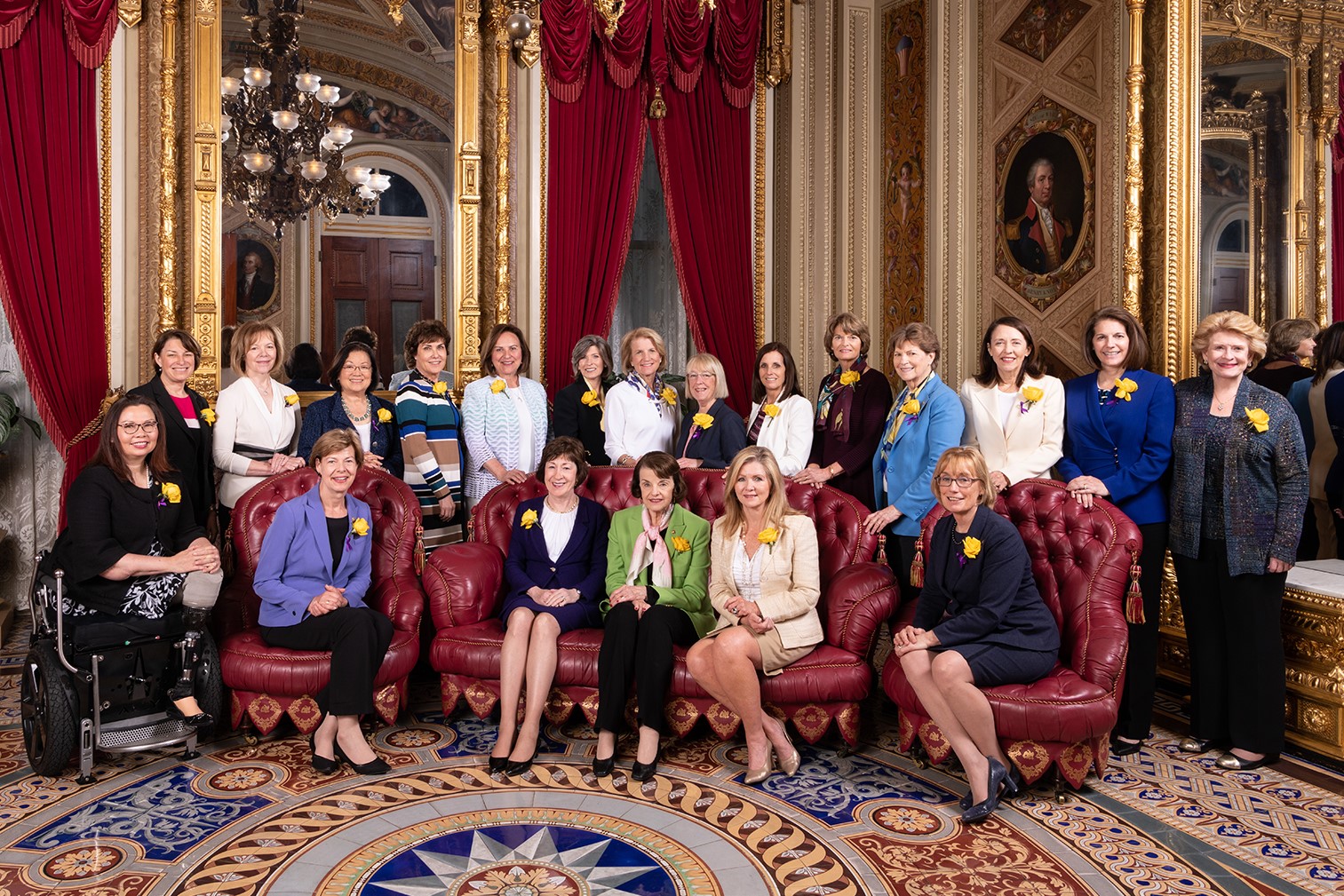Senators Collins, Feinstein Hold Bipartisan Commemoration of 100 Years of Women’s Right to Vote

Click HERE for a high-resolution photo
Washington, D.C. — U.S. Senators Susan Collins (R-ME) and Dianne Feinstein (D-CA), the most senior Republican and Democratic female Senators, led a bipartisan tribute commemorating the 100th anniversary of the passage of the 19th Amendment by the U.S. Senate. Senators from both sides of the aisle delivered remarks from the Senate floor to honor those who fought for women’s right to vote.
In addition to the floor event, the Senate unanimously passed a resolution, introduced by all 25 female Senators, to celebrate the 100th anniversary of the passage and ratification of the 19th Amendment. The Senate also passed the Women's Suffrage Centennial Commemorative Coin Act, legislation that would authorize the Treasury Department to mint coins in honor of the ratification of the 19th Amendment to the Constitution. Additionally, Senators Collins and Feinstein led all of their female colleagues in sending a letter to the Citizens’ Stamp Advisory Committee urging them to create a Women’s Suffrage Stamp featuring a yellow rose.
The resolution reads, “Resolved, that the Senate celebrate the 100th anniversary of the passage of ratification of the 19th Amendment, providing women’s suffrage, to the Constitution of the United State; honors the role of the ratification of the 19th Amendment in further promoting the core values of our democracy as promised by the Constitution of the United States; reaffirms the opportunity for people in the United States to learn about and commemorate the efforts of the women’s suffrage movement and the role of women in our democracy; and reaffirms the desire of Congress to continue strengthening democratic participation and to inspire future generations to cherish and preserve the historic precedent established under the 19th Amendment.”
Senators wore a yellow rose, donated by the Women’s Suffrage Centennial Commission, on their lapel throughout the day. The yellow rose, a symbol of the women’s suffrage movement, evokes the historic debate by the Tennessee legislature prior to becoming the final state to ratify the 19th Amendment in 1920. Those who supported women’s enfranchisement wore yellow roses, while antisuffragists wore red roses.
Following passage by the U.S. House of Representatives, the Senate, and three-fourths of the states, the 19th Amendment was added to the Constitution on August 26, 1920.